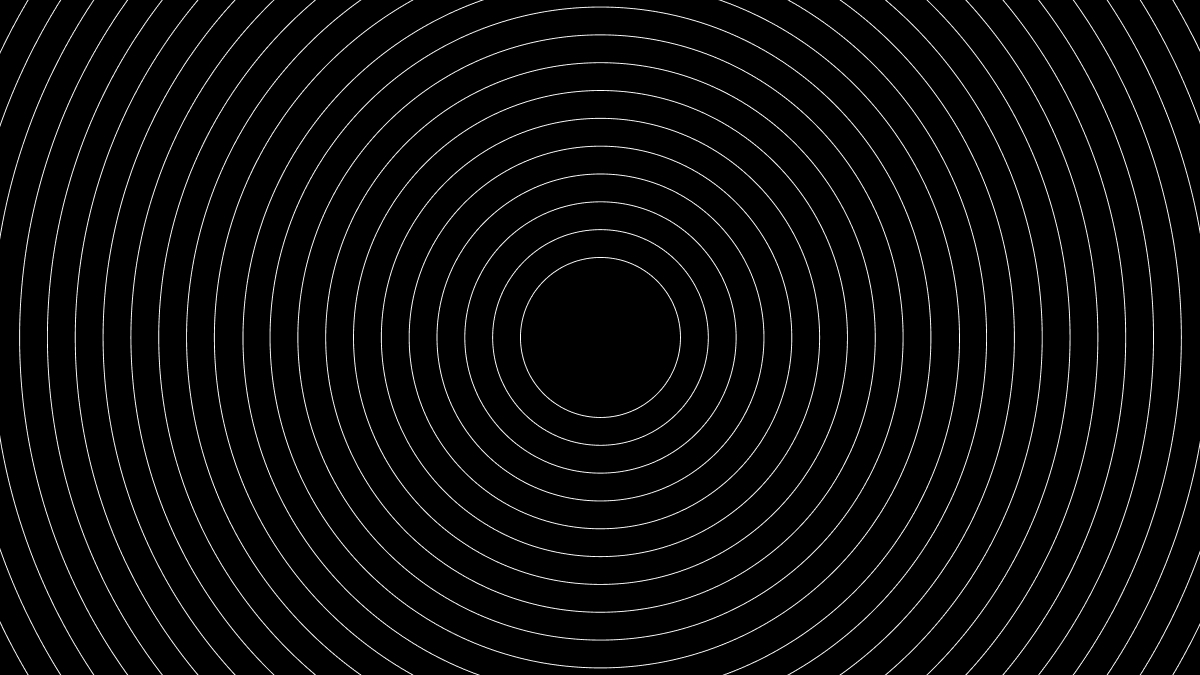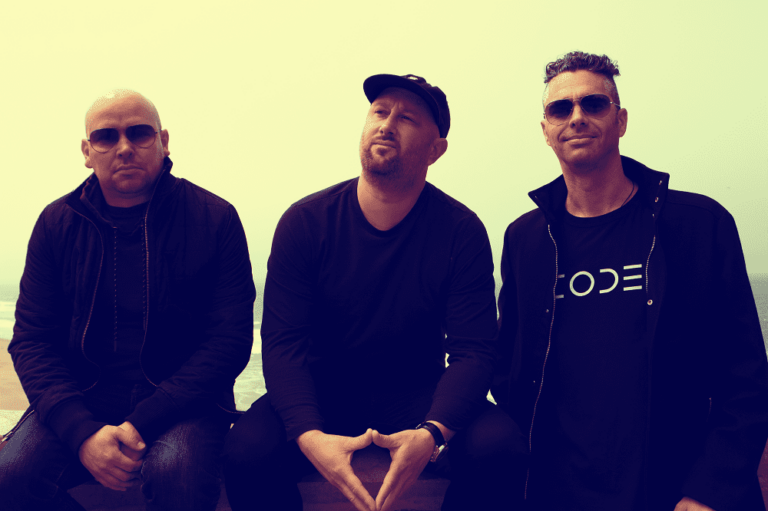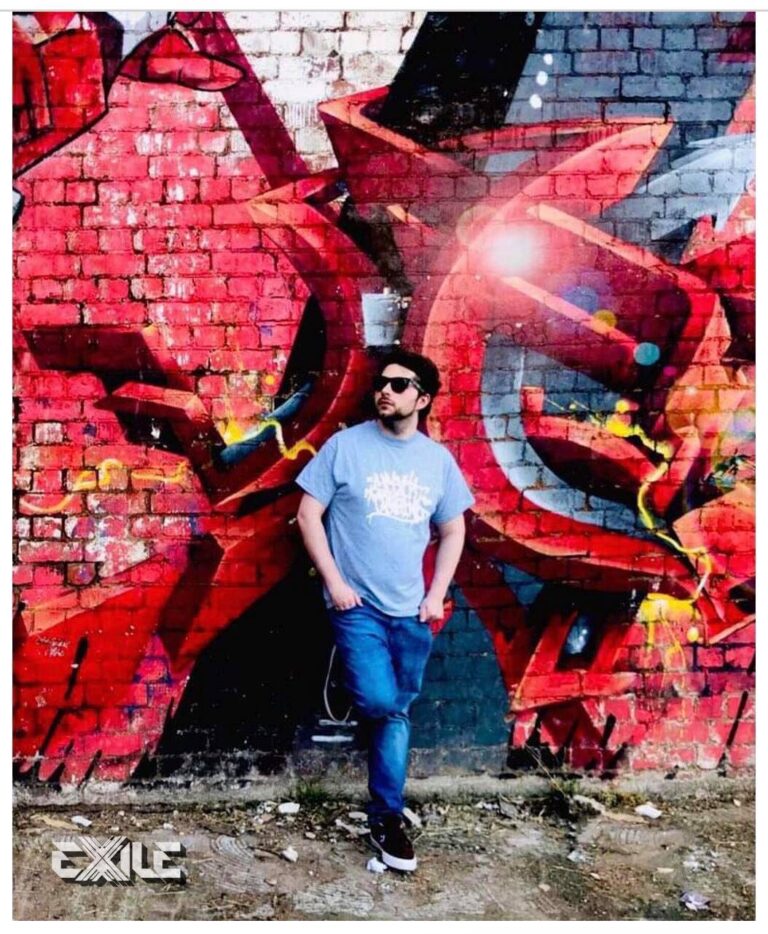Culprate’s done it again…
Last month saw the release of αριθμός τέσσερα, his second successful crowd-funded body of work.
Two years in the making, the genre-blending Bristol artist launched the project at the beginning of 2020 in a bid to create a sequel to the highly acclaimed Deliverance, his previous album released in 2014.
Its title translating from Greek to Number Four and pronounced “Arithmos Tessera“, like it’s predecessor the LP is characterised by a rainbow of flavours and influences that range from hectic IDM to Hindi music to flamenco to classic progressive rock and all kinds of modal moments in between.
Steeped in live instrumentation and characterised by ever-mutating arrangements, each of the seven album tracks contains enough ideas and schematics for at least twice or three times as many tunes as the maverick producer fires us around his musical psyche with what feels like equal measures of innovation and emotion.
Seven years since Deliverance, he’s still sculpting some of the most beguiling, inventive and unique electronic music within the bass realm. We called him up to find out more.
Why do I feel sad listening to this album?
For me it’s less sadness and more melancholy. There’s a bit of hope in the harmony, it’s not pure sorrow. All the tunes are in a major key so that’s where the hope comes from. But I feel the same thing – I feel myself emoting which I don’t usually get. It’s something to do with the chords I used, I didn’t stay in a key, I just did what feels right. I don’t usually do that.
Are you using different scales?
No it’s still western scales but I’m doing more modal stuff now. It adds a level of complexity that wouldn’t be there if you just used major and minor scales. It creates so much more room for creativity and modulation.
We’re a stone’s throw away from jazz here. Are you formally trained in theory?
No not at all. It’s developed over the years. I came from a band background and who needs theory when you’re playing metal and chugging away? When I started producing there was always something wrong. Like ‘The sounds are cool, the idea is there but it doesn’t sound nice. Why?’ So through solving problems I’ve learnt more. I’m no professional though. I’ve had formal training on recording but everything else has been discovered through necessity. Searching for remedies. It’s all incremental.
I bet you learn loads making albums like this?
That’s why I enjoy doing this stuff. The outcome is fulfilling but the lessons you learn along the way are a whole other world. I wouldn’t learn these through making club bangers.
I love how you take these worlds and fool us to some very pure forms of music. Like flamenco for example…
Yeah – classical Spanish guitar. That sound really lends itself to the vibe of electronic music. It’s very dark and emotional. The same with Bossa Nova. A classical artform that works so well with breakbeats. It’s not done enough.
Definitely. Going back to start. You’ve said that your original intention was to outdo Deliverance
How arrogant is that? This process has changed my relationship with Deliverance. I thought over seven years I’d naturally be better and of course I’ve had more experience, but it’s about catching the vibe. There are lots of errors on Deliverance but they work. But to try and better that, was a mindfuck and I shouldn’t have approached it like that.
I don’t think you should release music unless it’s better than your last one and I’m not sure this one is better. You’ll have to ask listeners that. For example, for me, my favourite Amon Tobin album is Foley Room and I didn’t like ISAM when it came out. That took a long time to grow on me. Deliverance is seven years old and people have become attached to that. So it’ll take time to get used to.
It pays respect to Deliverance and follows on like a sequel. You’re right about attachment. I remember we spoke about Deliverance – you said there were things you’d do differently. Did you learn from lessons?
Oh a lot. We definitely applied them to this one. Logistical things like distribution and charging for postage. That was a big lesson. Another lesson I’d learnt I couldn’t actually put into practice… On Deliverance I didn’t manage the money. It was me and my mates for weeks, 24 hours a day in the studio constantly making and recording and getting really high. It was mad. But then everything that happened in 2020 happened, so it was a whole new challenge to do everything online. Because everyone did it online with their own equipment every recording sounded totally different. There was a lot of massaging with the audio. I had to re-do recordings two or three times. It was long. Really long. It was a lot more difficult than having people in the room.
Those were the times I guess. You couldn’t do it any other way
That’s it. I don’t regret it. I learnt it’s not the best thing to do for an album. An album has to be done in the studio with everyone present. It’s a lot more pure in that way. I’ve learnt my lessons now though.
The album is a very global experience. There are a lot of languages such as Hindi, Swahili, Spanish…
Fully. Despite the issues of recording, it was cool to get people form different countries to perform on it. So the bossa nova style track, I got a Brazilian to play on it. The flamenco one, I got a Spanish artist to do it. I don’t know how much it matters in the end result, but for me it makes sense.
Makes total sense. Authenticity! I think to celebrate a culture you need that level of realness
Entirely. I’ve always been into Eastern sounds because half of my family is Asian. My dad’s side came from China, they’re Buddhist and very spiritual people. It’s something embedded in my childhood. The cadences are music to me. And all the music I like follows that modal soup. When you look at everything I like it then it all comes from a very similar source of inspiration
A lot of this is nostalgia for you then?
Yeah completely. I think it helps to create something that will possibly be timeless. Something you could listen to in 10 years and get the same emotions. That’s why I go for the classic sounds – rather than the modern sounds which date very quickly. Classic rock, for example, will never go away
Totally. Fly has some amazing classic rock elements which are nostalgic for me. I say elements as no track sits still and has so many ideas in one.
I think that’s a happily accidental result of my lack of confidence and worrying that the track is not interesting enough. Or perhaps of my ADHD which I have pretty badly. I’d struggle to make a techno tune for example because it’s very loop-based and I just wouldn’t have the focus to make something of that nature. Even if I wanted to. But I’m pretty sure it’s insecurity.
That’s mad to hear – I see you as comfortable with how you work. So comfortable and confident that you reach out to the community for funding
I’m not sure. I’m no psychologist, but the very fact you said the album makes you sad could be a direct translation of my worries and insecurities about my music. Who knows?
Wow okay. Never considered that. So tell me about the singer on that intro. He’s one of only two vocalists on the album…
I found it on a sample site. A really low budget one. It was terrible quality but I wanted to use it because I loved the vibe of it. It was perfect. It just needed to sound better. I tried lots of different things, tried to get it re-sung but in the end I tracked down the original person who sang the sample. Brendan Day. He’s American and he does a convincing Sid Barrett impression. Every other vocalist I tried was too modern. He had this purity. His accent is totally put on but I was so pleased he got back to me. If I’d never heard that Sample before, it wouldn’t have mattered but it became my standard and it seemed the tune really needed that specific guy.
I love that. Who is James Berland?
He was through crowdfunding. Like how Deliverance had Memoires Of Gregory Otterman. I did call the track Psychology at first but his name gives it context.
I love crowd-funding things and seeing communities build up around creative projects. It gives me faith in humans and how some of us value art
Yeah it’s motivating. For someone to give money – and it’s not a small amount – and for them to wait two years for what they’ve paid for? It’s mind blowing. Thousands of people give enough of a shit about this. That’s mad and amazing.
Does that create a pressure for you?
Hmmm yeah it definitely does because you’re obliged to do the thing. I’d call that fire under my arse. It’s something I want to do or otherwise I wouldn’t bother. But, that said, I don’t work for these people, I appreciate their support and I will keep making music for them but I don’t work for them, I work for my family. So I don’t feel pressure in that sense. They’re investing on the back of what I’ve done previously and that’s what they want to do. This is fulfilling to me, I learn a lot and it brings meaning to me. The only thing that affects me is time. I like to get things right and that takes ages so I feel for the fact that people are waiting for so long. So if any fans pressure you they’re not fans – they’re just an angry mob.
Haha. I hear you on the time factor. Also, sometimes, for whatever reason, you can’t be creative. You might have a block or just not inspired. But you’ve promised to deliver something. So you have to crack your own whip don’t you?
I do and I did. That’s why I started streaming because I was just sitting there like, ‘Eerrr, what shall I do?’ I thought streaming would motivate me to do stuff, so I’m not sitting there like a lemon and people can see there’s progress and I’m doing something.
Did you make any meaningful connections via the streams and did they shape how the album sounded at all?
I did make a few friends who I’ve kept in touch with since. It was good for that. They didn’t shape how it sounded because people were generally very nice and just said it sounded great, but they did shape it one way because they made me make it quicker.
Ha. Everyone who took part enjoyed the album early, too…
Digitally yes. I sent it out months ago. We had a little issue with vinyl so they’re still coming. But I had the digital copies ready to go so why not share it with them? They’ve got to have a reward for their patience and making it happen and these supporters shout about it so they do this amazing promo for you.
I love that. What have you learnt from this if you were to do it again?
The biggest discovery was when I was thinking about what I’d do next was that I thought I don’t want to have to deal with so much physical work processing work. Like processing instruments. So the next one will be more IDM and electronic. That’s what I’ve discovered. After Deliverance I wanted to do the same thing again. But now I don’t. I didn’t feel like this before, so it’s definitely something that’s come about as a result of this.
How do you feel after finishing such a big project?
I personally have to stop myself because I get too motivated and want to get stuck back in. But I’m aware of burnout. I have to pull myself away from the studio and take a breather so I don’t ruin my relationship with the creative process. I’m decompressing right now and only doing things to keep boredom at bay. The stress needs to subside before you start a new project but this is all I want to do, so it’s very hard.
And do a few gigs throughout the summer!
A few gigs here and there. It’s actually been quite a quiet one, which I don’t mind at all. Going out to DJ is the job part for me. Once I’m there, I’m happy but getting there? I like my house too much, you know? So yeah the album is out, I think it will do okay and I’m just taking some time to enjoy the summer….
Culprate – αριθμός τέσσερα is out now
Follow Culprate: Facebook / Soundcloud / Bandcamp


